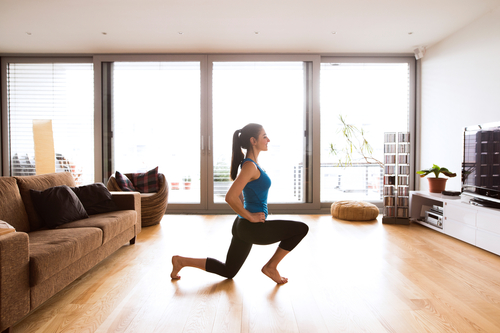Keeping your heart healthy is the most important thing you can do for yourself. It is often said that the heart is the hardest-working muscle in the body, and its health is fundamental. As the heart pumps blood, oxygen and nutrients are delivered throughout your body. On average, the heart beats 100,000 times daily and pumps 2,000 gallons of blood daily.
Physical activity plays a key role in maintaining a healthy heart. This is one of the best ways to strengthen your heart muscle, control weight, and prevent artery damage caused by high cholesterol, high blood sugar, and high blood pressure.
Take a look at these six exercises for healthy hearts and find out how they can improve your heart health.
How does a healthy heart benefit you?
The US ranks first in the world for the number of deaths caused by cardiovascular disease. A healthy heart is essential to your health.
This may not always be easy since heart disease and other related problems are associated with multiple risk factors. For instance, aging and genetics are not within your control. But you can take several steps to improve your heart health.
It is important to eat healthily, avoid tobacco, and exercise.
Some heart-strengthening exercises
- Taking a walk
Indeed, it seems to be a simple task. Yet, walking, particularly speed walking, can be a very effective means of strengthening your heart. A fast walk will raise your heart rate while less taxing on your joints than other forms of exercise.
You can walk anywhere and whenever you like. All you need is comfortable shoes. Take a short walk at lunchtime or a long walk at the weekend. Listening to music or podcasts is a great way to walk with a friend. As walking is flexible, it is easy for anyone to do.
- Interval training at a high intensity (HIIT)
HIIT involves short bursts of high-intensity exercise followed by a higher-intensity exercise for longer periods. For example, you could alternate between running and walking for a minute.
Interval exercises strengthen your heart. Also, there are incline treadmills that you can purchase for your home workout. Exercise on these treadmills promotes cardiovascular health.
According to some studies, moderate-intensity training has been found to increase fitness levels more effectively than continuous moderate training. Therefore, if you consider adding HIIT to your routine, you should consider adding once or twice a week.
- Strengthening your muscles
Exercising with weights and doing push-ups gets your heart pumping. As your lean muscle mass increases, you also burn more calories when resting. This can assist you in maintaining a healthy weight.
The fact that all of this is good for your heart should not come as a surprise. Several studies have shown that strengthening the muscles can reduce the risk of a heart attack or stroke by as much as 70%.
- Yoga practice
Research suggests that yoga may assist in preventing and managing cardiovascular diseases. Yoga poses and pranayama can improve your cardiovascular health. In addition, they help improve lung capacity and muscle tone while relieving stress.
Rehabilitation trainers also believe that yoga benefits people with cardiovascular diseases as part of their rehabilitation process. However, practicing all these exercises at once is not possible or recommended.
- Sporting
A sport (like badminton, tennis, or basketball) can improve heart health by increasing blood circulation, oxygenation, and heart pumping. What is your favorite type of sport? Do you wish you could play it? Next, get the serotonin flowing to stimulate the release of adrenaline.
If you have a heart condition, you should avoid extreme exercise, and you should seek the advice of your physician if you plan to join a group or play a sport.
Summary
Exercise has a positive impact on heart health and cannot be understated. It is especially relevant to individuals who lead a sedentary lifestyle and eat unhealthily. These exercises have been shown to reduce blood pressure, burn fat, and reduce inflammation.
People with heart conditions should avoid high-intensity interval training, marathons, and triathlons. You should consult a physician before starting these exercises and warm up ten minutes beforehand. In addition, make dietary changes and abstain from smoking for optimal results.

